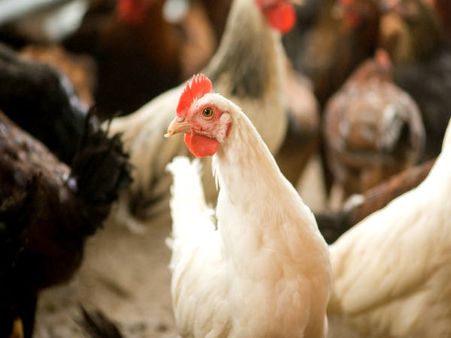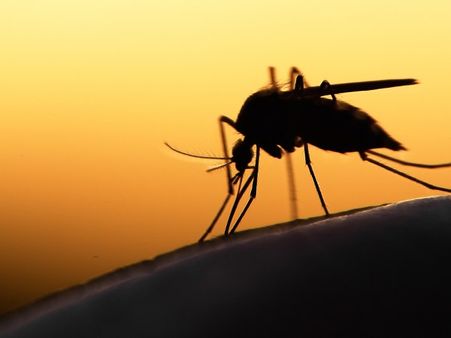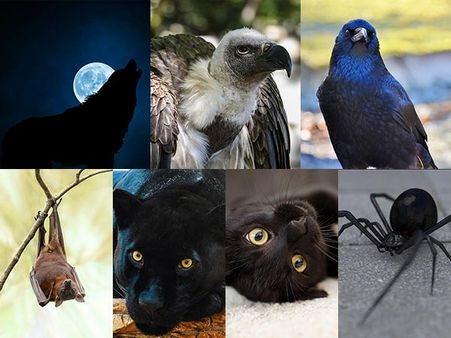Just In
- 7 hrs ago

- 7 hrs ago

- 11 hrs ago

- 17 hrs ago

Don't Miss
- Sports
 Most Sixes in IPL 2024: Top 10 Players And Teams To Hit Most Sixes As Of April 20
Most Sixes in IPL 2024: Top 10 Players And Teams To Hit Most Sixes As Of April 20 - Finance
 2:1 Bonus Issue: IT Penny Stock Turned; 1,600 Shares Market Lot Size Revised To 4,800 Shares
2:1 Bonus Issue: IT Penny Stock Turned; 1,600 Shares Market Lot Size Revised To 4,800 Shares - Movies
 Bigg Boss Malayalam 6 Voting Trends: Saranya, Sreerekha or Jaanmoni; Who Will Get Least Votes On Mohanlal’s Sh
Bigg Boss Malayalam 6 Voting Trends: Saranya, Sreerekha or Jaanmoni; Who Will Get Least Votes On Mohanlal’s Sh - News
 Chinese President Xi Jinping Orders Biggest Military Reorganisation Since 2015
Chinese President Xi Jinping Orders Biggest Military Reorganisation Since 2015 - Education
 Exam Pressure Does Not Exist; Studying Punctually is Crucial; Says Aditi, the PSEB 2024 Topper
Exam Pressure Does Not Exist; Studying Punctually is Crucial; Says Aditi, the PSEB 2024 Topper - Automobiles
 Suzuki Swift Hatchback Scores 4 Star Safety Rating At JNCAP – ADAS, New Engine & More
Suzuki Swift Hatchback Scores 4 Star Safety Rating At JNCAP – ADAS, New Engine & More - Technology
 Dell Introduces AI-Powered Laptops and Mobile Workstations for Enterprises in India
Dell Introduces AI-Powered Laptops and Mobile Workstations for Enterprises in India - Travel
 Journey From Delhi To Ooty: Top Transport Options And Attractions
Journey From Delhi To Ooty: Top Transport Options And Attractions
Zoonotic Diseases: Types, Risk Factors, Transmission And Prevention
If you have been reading news reports on coronavirus disease (COVID-19), you may have come across the term zoonotic diseases. So, what exactly are zoonotic diseases? We'll explain it here.

What Are Zoonotic Diseases?
Zoonotic diseases, also called zoonoses are diseases that spread from animals to humans. Animals can sometimes carry harmful germs like bacteria, virus, parasites and fungi that can be passed on to humans and cause zoonotic diseases, which can lead to mild to serious illness and even death.
Zoonotic diseases are common around the world. More than six out of every ten known contagious diseases can spread from animals, and three out of every four new contagious diseases in people can be transmitted from animals [1].
According to the World Health Organization (WHO), at least 61 per cent of all human diseases are zoonotic, and 75 per cent of newly discovered diseases in the last decade are zoonotic [9].


Types Of Zoonotic Diseases
•
Rabies
[2]
•
Salmonella
and
E.
coli
infections
•
Swine
flu
[3]
•
Severe
acute
respiratory
syndrome
coronavirus
2
(SARS-CoV-2)
[4]
•
Malaria
•
Ringworm
•
Bird
flu
•
Ebola
[5]
•
Leprosy
•
Zika
fever
•
Cat
scratch
fever
•
Anthrax
•
Bovine
tuberculosis
•
Campylobacter
infection
•
Brucellosis
•
Dengue
•
Encephalitis
from
ticks
•
Enzootic
abortion
•
Cryptosporidiosis
•
Cysticercosis
•
Fish
tank
granuloma
•
Erysipeloid
•
Pasteurellosis
•
Hepatitis
E
•
Glanders
•
Giardiasis
•
Hemorrhagic
colitis
•
Hydatid
disease
•
Lyme
disease
[6]
•
Leptospirosis
•
Listeria
infection
•
Louping
ill
•
Lmphocytic
choriomeningitis
•
Parrot
fever
•
Orf
infection
•
Plague
•
Q
fever
•
Rat-bite
fever
•
Rocky
mountain
spotted
fever
•
Streptococcal
sepsis
•
Toxocariasis
•
West
Nile
virus
•
Trichinellosis
•
Toxoplasmosis
•
Tularemia
•
Zoonotic
diphtheria


How Are Zoonotic Diseases Transmitted?
• Direct contact: Coming in direct contact with the bodily fluids of an infected animal such as urine, mucous, saliva, blood and faeces. This happens when you touch or pet infected animals or if you are bitten or scratched by an animal.
• Indirect contact: It involves coming in contact with areas where animals live and roam or surfaces that are contaminated with germs. These include pet habitats, chicken coops, aquarium tank water, plants and soil, barns, pet food and water dishes.
• Vector-borne:Vectors like mosquitoes, ticks and flea can carry infective pathogens such as viruses, bacteria and protozoan from one host (carrier) to another.
• Food-borne:Eating contaminated food such as undercooked meats or eggs or eating unwashed produce that is contaminated with animal faeces. Drinking raw or unpasteurised milk can also cause zoonotic diseases to spread and infect humans.
• Water-borne: Drinking contaminated water that contains faeces of an infected animal [7].

Who Are At Higher Risk Of Contracting Zoonotic Diseases?
•
Children
younger
than
five
•
Older
adults
who
are
above
65
•
People
with
weakened
immunity
•
Pregnant
women

Why Are Zoonotic Diseases A Growing Concern?
Zoonotic diseases are a global concern for many reasons:
•
Human
encroachment
on
wildlife.
•
The
novel
and
unpredictable
nature
of
the
diseases.
•
Hunting
of
animals.


Ways To Protect Yourself From Zoonotic Diseases
According to the Centers for Disease Control and Prevention (CDC), here are some ways to protect yourself and your family from the diseases [8]
• Wash your hands with soap and water right away after you touch an animal or if you are around animals.
• Prevent mosquito, ticks and flea bites.
• Practice food safety, know how to handle raw meat and seafood.
• Avoid bites and scratches from animals.
• Be aware of zoonotic diseases.
• Choose the right pets for your home.
• Don't kiss, snuggle or hold reptiles, rodents, amphibians and poultry close to your face.
• To prevent bites and scratches avoid playing roughly with animals.
• Clean the cat litter daily.
• Clean bites and scratches immediately with soap and water and seek medical attention.
• Vaccinate your pets.
• Stay away from sick animals

Common FAQs
1. What animals carry zoonotic diseases?
A. Most of the zoonotic diseases come from livestock including chickens, pigs, cattle, goats, sheep and camel.
2. What is the most common zoonotic disease?
A. Rabies, Lyme disease, Rocky Mountain spotted fever, dengue, malaria, salmonella and E. coli are some of the most common zoonotic diseases.
3. Is Ebola a zoonotic disease?
A. Ebola virus disease is considered a zoonotic disease that most commonly affects humans and animals such as monkeys, gorillas, and chimpanzees.
4. What are the symptoms of zoonotic diseases?
A. - GI symptoms: Diarrhoea, abdominal cramps, nausea, vomiting, poor appetite.
- Flu like symptoms: Fever, body aches, headache, fatigue, swollen lymph nodes.
- Skin lesions, scratches or bite marks.

-
 disorders cureLangya Virus Reported In China Causes Liver, Kidney Failure: Symptoms, Transmission And Its Link To Nipah
disorders cureLangya Virus Reported In China Causes Liver, Kidney Failure: Symptoms, Transmission And Its Link To Nipah -
 disorders cureWhat Is Coronaphobia, A Newly Emerged Phobia? Symptoms, Risk Factors, Diagnosis And Treatments
disorders cureWhat Is Coronaphobia, A Newly Emerged Phobia? Symptoms, Risk Factors, Diagnosis And Treatments -
 disorders cureFirst Death Confirmed In UK From New Outbreak; Know About Lassa Fever And Its Symptoms, Risks And Treatment
disorders cureFirst Death Confirmed In UK From New Outbreak; Know About Lassa Fever And Its Symptoms, Risks And Treatment -
 disorders cure15 Warning Signs And Symptoms Of Ebola Virus Disease
disorders cure15 Warning Signs And Symptoms Of Ebola Virus Disease -
 wellnessWhat Are Ventilators And Why Are They Important For COVID-19 Patients?
wellnessWhat Are Ventilators And Why Are They Important For COVID-19 Patients? -
 wellnessWhy Bats Themselves Don’t Get Infected By Viruses
wellnessWhy Bats Themselves Don’t Get Infected By Viruses -
 healthHow Poor Oral Health Can Lead to Fatal Lung Disease Like Pneumonia, 6 Facts You Need To Know
healthHow Poor Oral Health Can Lead to Fatal Lung Disease Like Pneumonia, 6 Facts You Need To Know -
 pregnancy parentingInternational Girl Child Day 2023: 4 Common Health Issues A Female Child Is At An Increased Risk
pregnancy parentingInternational Girl Child Day 2023: 4 Common Health Issues A Female Child Is At An Increased Risk -
 healthDon't Neglect Your Health: The Vital Role of Regular Check-ups in Detecting Silent Diseases!
healthDon't Neglect Your Health: The Vital Role of Regular Check-ups in Detecting Silent Diseases! -
 healthDengue On A Rise: Understanding The Key Differences Of Dengue Vs. Other Mosquito-Borne Diseases
healthDengue On A Rise: Understanding The Key Differences Of Dengue Vs. Other Mosquito-Borne Diseases -
 healthThe Hidden Dangers: Dehydration and Urological Issues in the Monsoon
healthThe Hidden Dangers: Dehydration and Urological Issues in the Monsoon -
 healthDiseases You Can Get By Being Stuck In Traffic
healthDiseases You Can Get By Being Stuck In Traffic


 Click it and Unblock the Notifications
Click it and Unblock the Notifications



